Affiliate disclosure: This post may contain affiliate links. Please see our Privacy Policy.
Some days I wonder what it must be like to live off the grid in a truly warm climate, like California. Sunshine year-round, no snow covering your solar panels and I bet their generators never get jammed up with ice.
While living off the grid in a cold climate has its challenges, I wouldn’t trade it for the world.
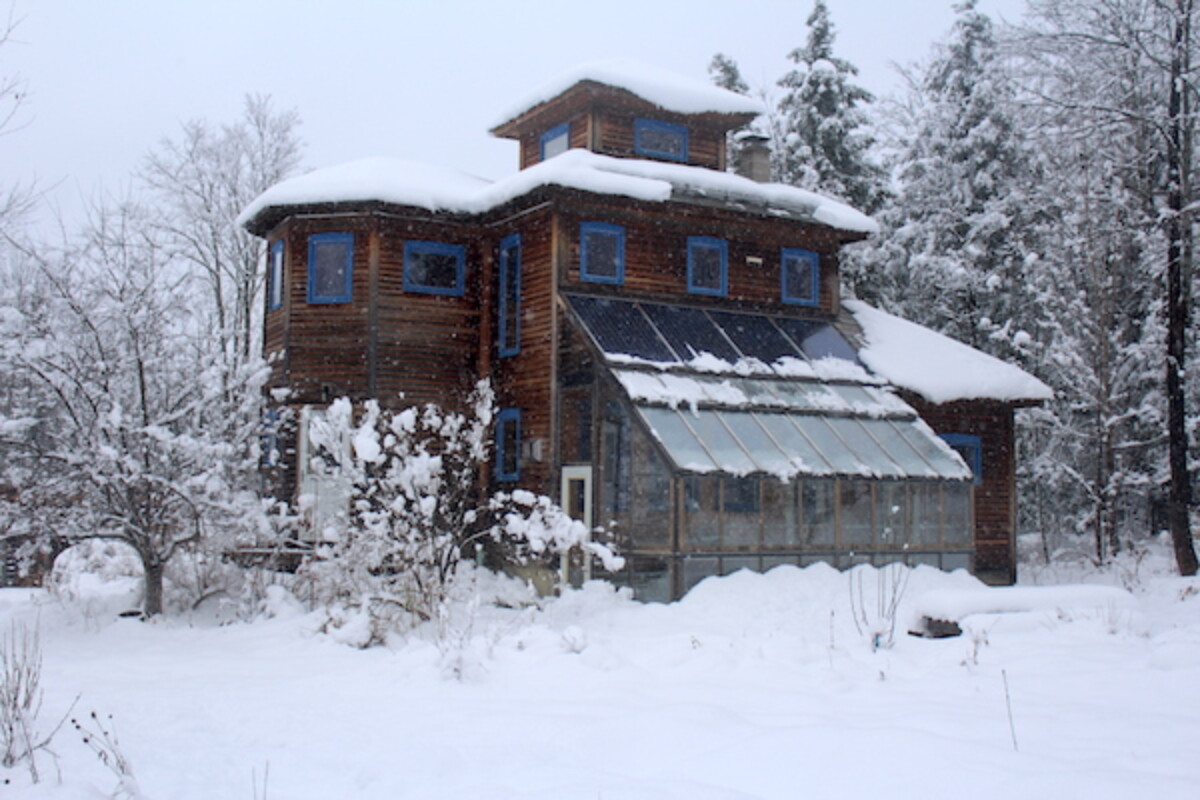
Pre-Winter Off-Grid Maintenance
In some ways, I feel like we spend much of the winter waiting for summer, and then at least half the summer preparing for winter. Our first year on the homestead we split all of our wood by hand, which amounted to a full hour of stress relief at the end of each day all summer long.
Therapeutic in a way, good exercise but a subtle reminder that winter is coming, even in July. Now that we have kids, we don’t have the luxury of hand splitting our own wood, but much of the summer is spent preparing in other ways.
Freezers are cleaned out and reloaded with fresh homegrown food, chimneys swept, fences mended and all the other myriad tasks that take us through one more circle around the sun.
Beyond all the general homestead winter preparations that are ongoing, preparing our off-grid systems for winter is a deliberate process. We try to start in early September, as some years we’ll see snow before October 1st.
Add Water to Battery Bank
Periodically throughout the year, we have to add distilled water to our batteries. Each terminal has a tiny cap that screws open and we use a big funnel to pour in a bit of distilled water. I would guess we use about 20 gallons of distilled water per year, and they’re especially low after the summer when they’re constantly recharged to full on sunny days.
A friend of ours that runs a small solar company makes his own distilled water using a small countertop water distiller, but we haven’t gone that far. You can’t do it all, and at least for now we draw the line at making our own distilled water, perhaps I’ll regret that after the zombie apocalypse, but for now we have other priorities.
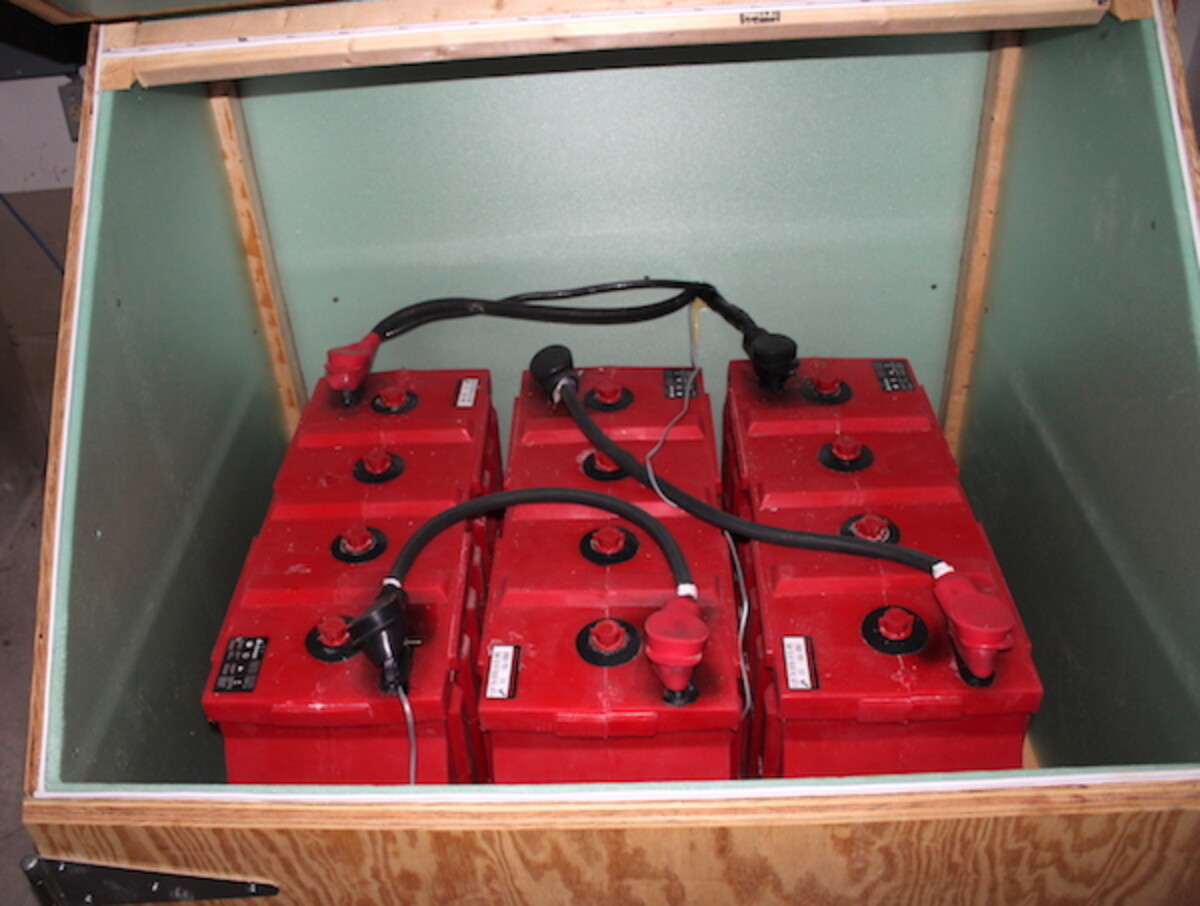
Equalize Batteries
Our battery bank needs to be equalized periodically, and there’s a controlled program that our inverter runs to do a controlled overcharge. This cooks any minerals that have accumulated on the plates off and makes resets the system a bit so that it runs more efficiently. This should only be done right after adding water to the batteries, as it causes the water to boil and there will be water loss during equalization.
Ideally, you go back and add more distilled water to the batteries after equalization too.
Test Generator
During the summer, we try to remember to run the generator every month. It’s rare we actually need it during the spring, summer and early fall, but that’s a long time to have it sit idle.
I say we try to remember, but often we forget and the battery is dead before winter. Luckily there are still enough sunny days left that we can pull the battery out and recharge it through a wall outlet.
Beyond that, it’s good to check and make sure that everything is in working order and do basic maintenance before we go into heavy generator use season.
Turn off Water to Unheated Buildings
Our pipes are buried good and deep but that won’t help if they come up into a structure that may freeze during the winter. We both have offices over our garage/shop, and we keep it pretty warm out there.
Still, we turn off the water for the winter. If we’re short on power, heating that building is the last priority. Besides that, occasionally the kids might leave a door open, and if it’s a long weekend a no one is out there it could end in disaster.
Our hose faucets along the side of the house don’t have shutoffs, which is a serious oversight. We’ve been slowly replacing them with frost-free faucets with a 12-inch lead that stays heated back inside the house, along with an in-house shutoff just to be safe.
We hadn’t gotten to this one yet…and it broke during a spell of below zero weather well before the winter solstice. At least it was cold enough that it froze itself shut pretty quickly. Do yourself a favor and make sure ALL your faucets have shutoffs before you have one end up like this…
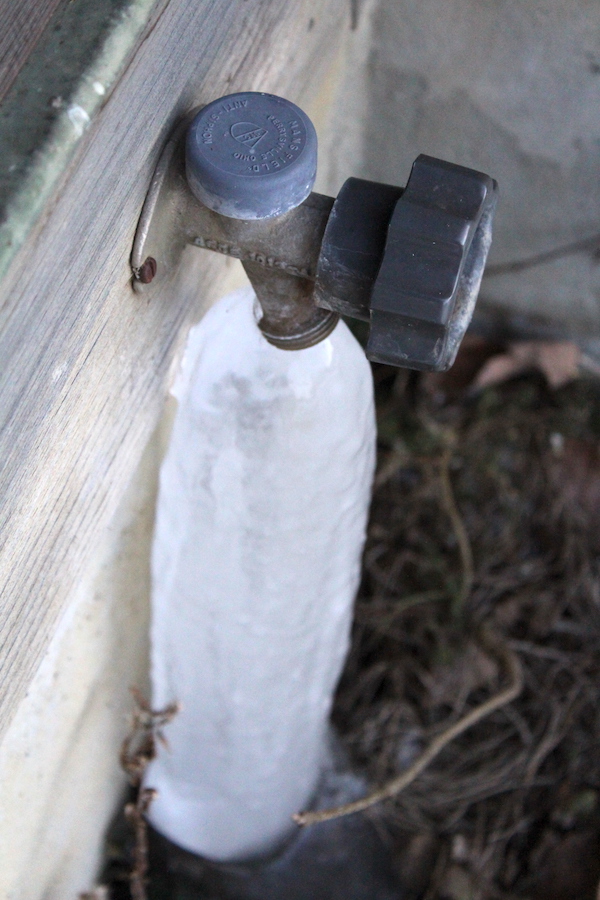
Clear Plow Zones & Prepare Tractor for Winter
I know it may seem trivial, but clearing the plow zones before winter is a big deal. There’s not a lot of space to push snow around our driveway, and any cleared space is used for processing firewood during the warm months. Making sure all those spaces are cleared before we get our first sticking snow is often a challenge, especially if we’re behind on wood processing.
Some freak years we may not get a snow until December, other times we’ll see heavy snow in late September or early October. That’s a big variation when you’re trying to plan out a work schedule, and you think you still have plenty of summer left to get it all done.
Similarly, getting the tractor put away in its winter abode often gets neglected, especially as we’re trying to process through the last of the wood splitting. An early freezing rain storm coating the tractor seat really dampens your work day…
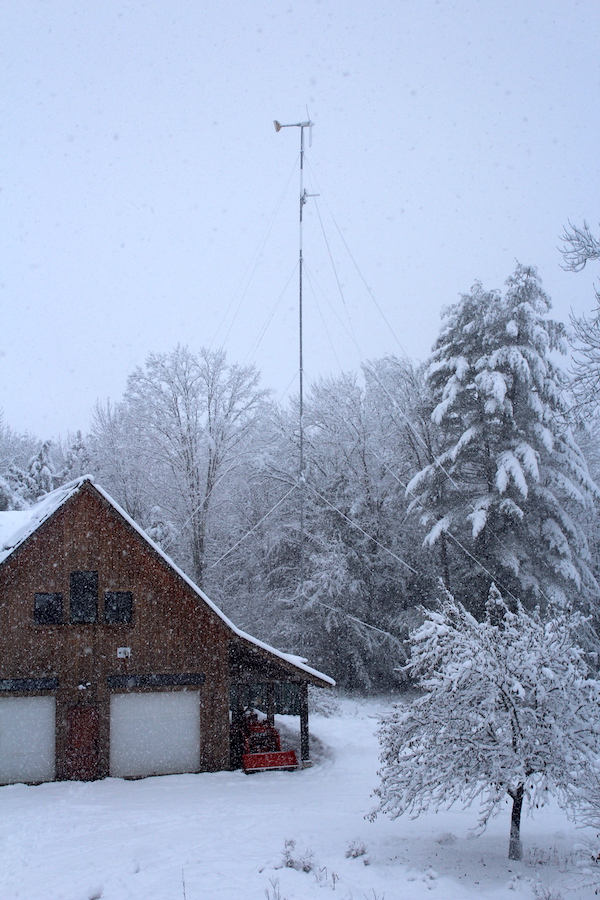
Test External Boiler
Each structure has a woodstove inside so that we can heat without electricity if need be. For the most part, our heat comes from a Tarm external boiler. The heat travels through underground pipes and warms the floors.
If you haven’t lived with radiant heat, it’s a real luxury. Beyond that though, an external boiler means we can burn softwood for heat. Most of our land is hemlock and we’re saving our maples for our small maple sugar operation.
It’s also important to check the system for pressure and find any leaks. A few years back we went in to run our early “test burn” to find that we didn’t have any pressure in the pipes.
No pressure means no heat to the house, but luckily we were testing the system before we really needed it. We got it fixed long before the heating season started, no sweat.
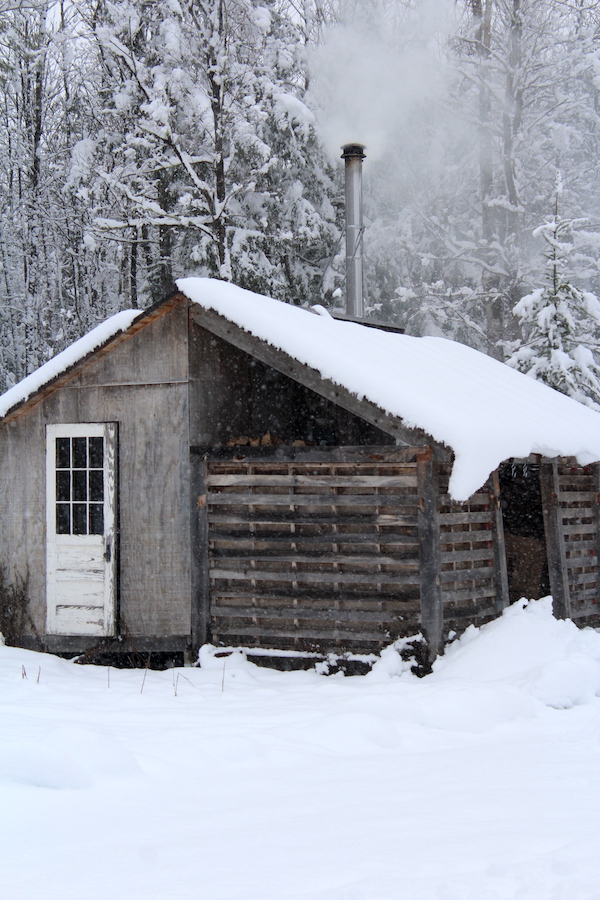
Mid-Winter Maintenence
Even after all the “pre-winter” work is done, there’s still plenty to do to keep things running smoothly in the winter months.
Refill Boiler Shed Wood
Our boiler shed can hold about 3 cords of wood, which is almost enough to take us through the winter if we burn hardwood. Since we burn mostly softwood it takes at least 6 cord, sometimes as much as 8 in a cold winter.
That means we have to reload the boiler shed with wood periodically throughout the winter. We also have an 8 cord woodshed, but it’s about 100 feet away. When the weather is good, we’ll use the tractor bucket to shuttle wood to refill the boiler shed.
In Mid-December this year we’ve already moved over half our “reserve” wood which isn’t looking promising. This winter has been colder than most, with quite a few days well below zero already.
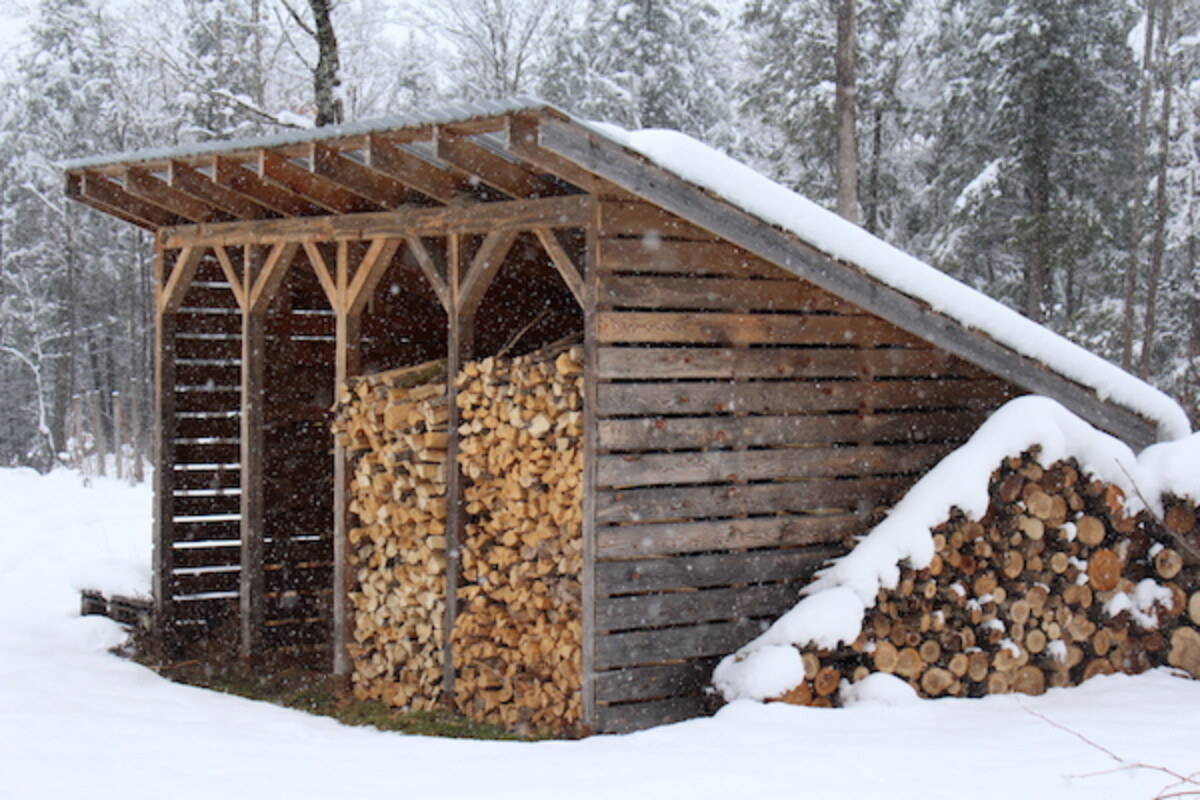
Keep Freezers Full
It may seem counter-intuitive, but the best thing you can do to prevent food spoilage is to keep the freezer really full. At least in our case. If our power is out, it won’t be out for more than a few days and during that time the freezers act as giant ice chests.
More frozen mass means more to insulate everything, and with the freezers in a cold basement that can get us by without any waste.
Clear Solar Panels
Solar panels don’t work particularly well when they’re covered in ice and snow. The best way to keep them working is to keep them clear. On our house, the solar panels are at the very top of our greenhouse.
We use a big push broom to pull the snow off the glass. Any stray rays of sunlight heat the greenhouse, which melts out the panels quickly.
Above the solar panels, you’ll notice there’s an icebreaker bar on the roof. That’s really important to keep falling ice chunks from breaking the glass and solar panels.
Still, the noise when ice falls is truly terrifying, sometimes I wonder if that breaker bar is enough to really protect the panels. Knock on wood…
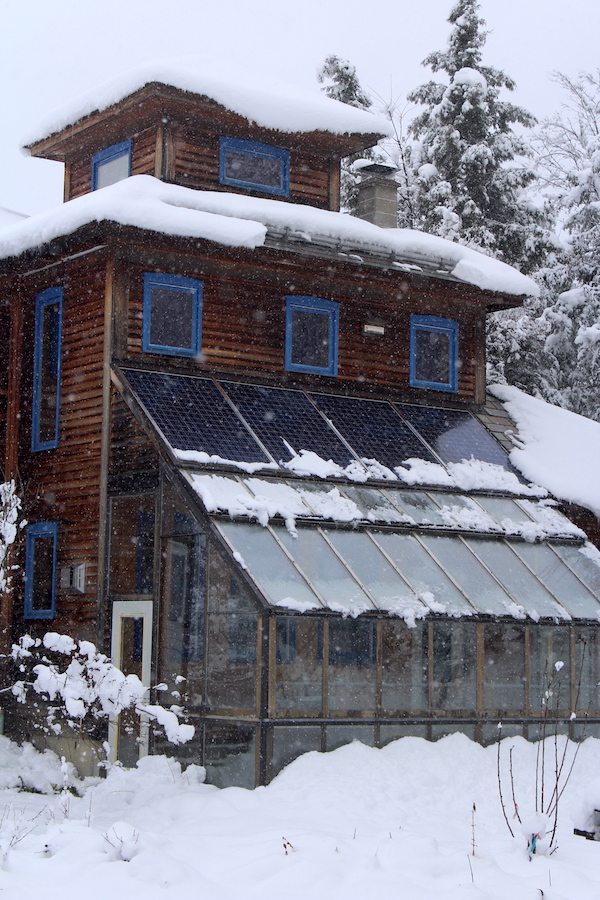
Our house has 4 solar panels, but our workshop has 8 (here’s a tour of our system). While we can clear the house panels by clearing the greenhouse, the shop panels are another matter. They’re way too high to clean, up 3 stories on a peaked roof.
The roof has a good pitch to it, and they’ll often shed light powdery snow. The roof has a foot of blown-in insulation though, and it loses very little heat.
That’s bad news in ice storms and during heavy snow load. Even with a steep pitch, the snow will sit on the roof coating those panels.
One year they were iced in for a full 6 weeks and we were running on just the house panels and generator. Given a choice, I’d take ground panels any day. At least those I could clear by hand if need be.
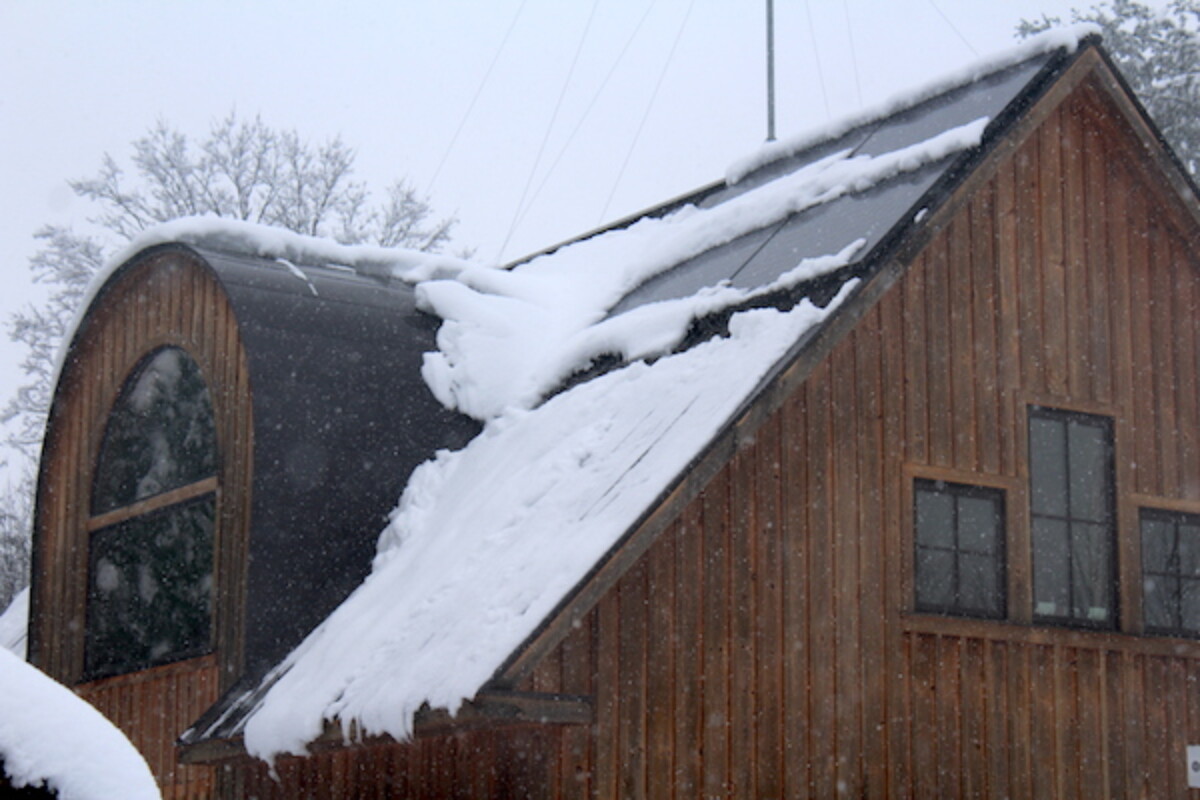
When we had animals to tend to, our winter workload was much more intense. Using heated animal water troughs isn’t an option when you’re running on batteries, and neither are heat lamps. That means haling bucket after bucket of water to thirsty pigs in the winter, and opening or closing doors constantly to keep everyone warm but not stir crazy.
After 5 years completely off the grid, we now have a grid connection that we can turn on to charge our batteries like a generator. That means we’re less dependent on the generator in the winter, which saves on fuel, and we don’t have to flip on the grid unless we want to.
It also means that even though we technically have a grid connection, we never notice when the power goes out to the whole town. It’s more or less the best of both worlds, batteries and super-efficient off-grid appliances…but still the option to charge the batteries at the flip of a switch.
Nonetheless, our winter preparations are the same as they’ve always been. This year there’s already been an ice storm that took down the grid in our area for 10 days, and we didn’t skip a beat.
I’m sure there’s more, and I’ll remember it as this winter goes on and add to the list. What do your winter preparations look like? Leave me a note in the comments.
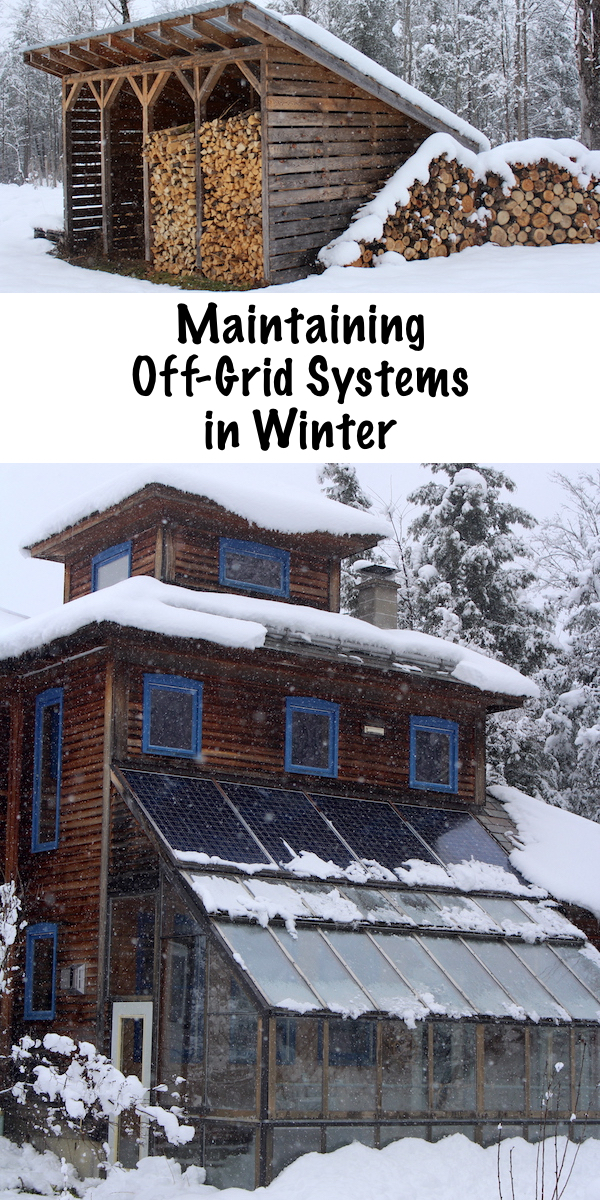
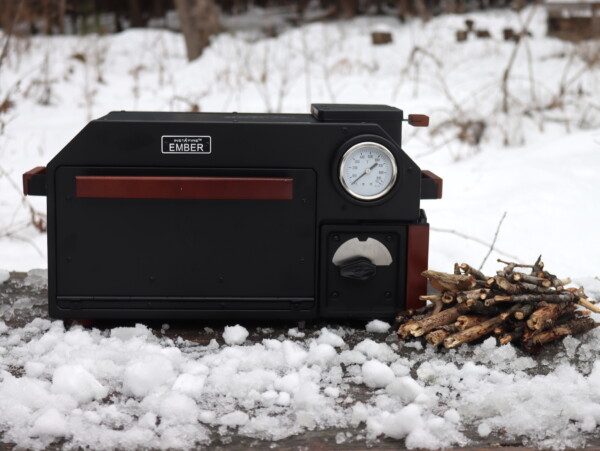
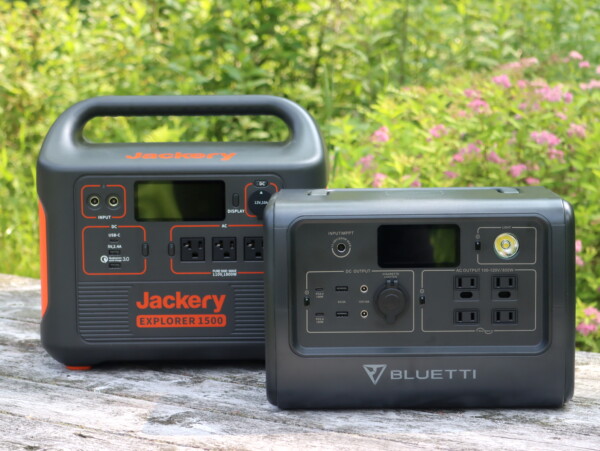
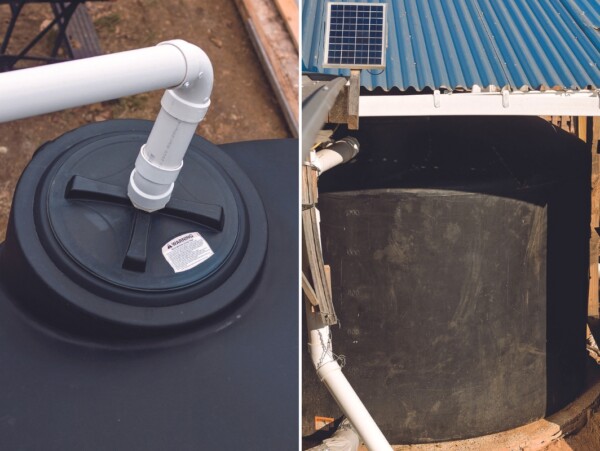
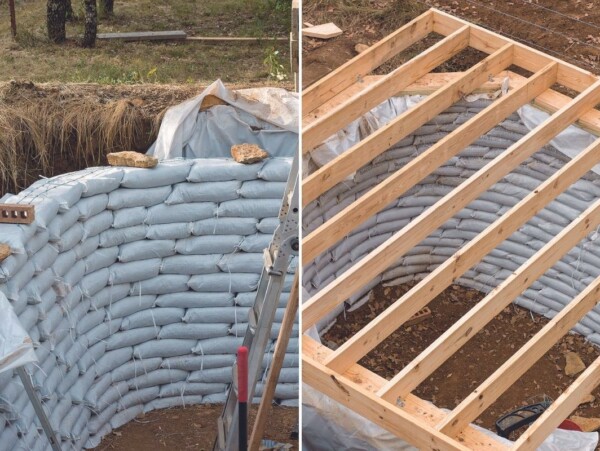










I appreciate you sharing your experiences. Good things to think about. I’ve thought about solar panels on very high poles that with a push of the button they’d tilt or go completely go upside down to remove the snow but you mentioned freezing rain. Never considered that. That now is something to ask a pro about. I would like wind power too but they would probably also freeze up. I’m guessing. Another question for a pro. Yep. Better think about getting a very good generator. Here’s something that you might consider buying for your greenhouse and other plants around your homestead. Get a large water holding tank and catch rainwater to give those plants “IF you have an area, that you could keep the water from freezing in the winter because you could use it for plants indoors using grow lights. Thanks again for giving me ideas and questions that I never thought of.
You’re very welcome. Thanks so much for sharing.
Is there an email address I can contact you, my computer system is old… akismet does not work.
I could share a lot of good information to you.
You can find the email at the bottom of this post. https://practicalselfreliance.com/about-us/
Hi Ashley, Just found your blog and it’s awesome! My wife and I are planning on buying land to start an off-grid homestead in the near future and have been trying to figure out what off-grid systems would work best for us. We live in Northern MN and I was wondering what sort of water systems you have as far as bringing water into the home, black water, and gray water? I didn’t see a post mentioning what you use at all and was very curious since I imagine you have to worry pipe freezing just as we would. Would love to hear any input you have or resources to check out! Thanks!
We have a regular well pump and well, along with a septic system…exactly the same as any rural house in Vermont. I wish we had a gravity well, because the biggest draw on our electricity is the well pump. That thing really pulls juice, and we try to only shower and do dishes during peak production if possible. If there is any way you can get land that has gravity well potential, to provide water without having to pump it out of the ground, that’s a huge benefit.
Hello there, I’m in northern Ontario and we have just run thru a bit of bad luck as dairy farmers and are looking at buying a chunk of land off grid. I’m looking for any advice or anything you wished ppl would have told you before you went off grid. Also we have about 20 cows, 16 goats, chickens and other fowl, and looking to get 6 horses eventually.
Thanks!
Sure, happy to help! With that many animals, water can be a huge issue. Our well pump is our single biggest user of electricity and if I had it to do over, I’d work really hard to find a place that has a gravity well. Hopefully, you’re mechanically inclined because generators seem to break down all the time. If you don’t know how to fix one, start working on that now. I’d also say, get twice the battery capacity you think you’ll need, it’s really worth it on the upfront investment and will save you a lot of frustration later. Good luck!
We are getting are home Freddy for sale and live off grid in the Rocky mountains of Idaho. Well live on the Puget sound Wa. state. I’m going to us mother nature for heating and cooling system. It’s 8 foot deep trench about 100 in length, take a 2 inch water line, add a water and alcohol solution canect to in line pomp and berry the line.
You need about 10 in length under the house to manetnes to the pump. Enclose that part in a sheet metal box add your squirrel cage fan and heat docks and done. Wenter your warm and summer your cool. Still trying to get recusal for the alcohol to water mix. I just got myself a 3stage us military decal generator. Can’t wait to get out of this over texted state make over 50,000 a year and living from pay check to pay check. I will be there soon house going on the market in 4 mouth.
So I’m planning on moving off grid to rural Maine so I think we’d have about the same weather..? The place we’ll be buying has solar panels on the roof but the lack of sun in the winters makes me nervous…have you ever considered wind turbines to supplement?? Didn’t know if that would be a feasible route?
Also curious if there’s ever ice on the panels and how you’d break that up?
Ha…we do have a wind turbine…but there’s no wind here. It turns less than 10 days a year, so it’s not much of a help because we’re in such a sheltered location. Some friends of ours about 20 miles away power an off-grid yurt almost exclusively with wind because they’re on a ridge, they just supplement with a single solar panel and they’re fine all year. It really depends on your location.
With the panels up high on the roof two stories up there’s not a lot you can do if they get iced in. We had a brutal 6 week stretch a few years back, and now we’re saving up for ground-based panels to supplement in the winter because we can clear them.
Ashley this is a nice article. We have been one year in the UP and are now considering an off grid option. As we read our Bible and consider its truths we consider what can happen. We have a son in the military and hear how we are subject to terror strikes and how easy it may be. So we are seriously planning and want to be self sufficient. So thanks for your help. We have a boiler we heat with wood and I love the floors being warm!!! We have a generator for power outages and looking forward to off griding! Thanks look forward to your blog now. Brenda
My husband and I live in Northern California, in the coastal range mountains, at about 3,000 ft elevation. We have 6 panels and 8 batteries. We are not able to hook up to the grid at all. We have a large back-up generator that runs on propane. We just had to buy new batteries (ugg!!!) Here we rarely get even single digit temperatures, 9 degrees about 20 years ago. Generally the temperatures only drop into the low 20’s. We have been off-grid for about 20 years now. My husband had the panels on the roof of the battery shed, but moved them to the ground about 9 years ago. Generally the snow we do get melts off when the suns starts shining on them. We have a pellet stove for heat, because my husband now has a heart condition and can’t do the wood cutting and splitting, and I have the Lyme bacteria and can’t do it either. Love reading your stuff, take care, merry Christmas.
Wonderful, so happy to have you along for the ride. We’ve been looking at one of those gravity feed pellet stoves as a backup, and I think that’ll be a great plan as we get older. I’m from the desert in So. Cal originally, which is the less fun part of California. Northern Cali is pretty lovely, I’ll admit.